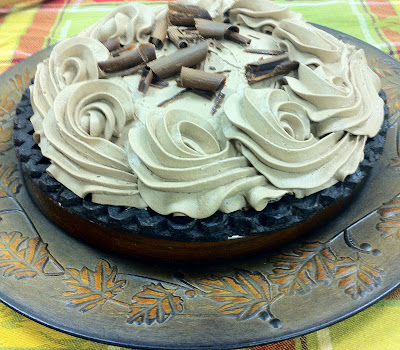Bookenders book group met to discuss
The Forgotten Garden by Kate Morton on October 27th. Diane Marsh did a great job at leading an interesting and thought-provoking discussion.
Everyone enjoyed the book. They found the fairy tale feeling of the book endearing. The female characters were strong and memorable. The mystery was intriguing.
One person attending book group had personal experiences that were similar to a story in the book. Her thoughts were very interesting and gave a whole new insight to adoption and not finding out about your biological history until you are older.
For refreshments after the discussion we had a tea party. There were many delicious herb teas to choose from. A favorite one for many was the Good Earth Sweet and Spicy Herb Tea.
We served British foods such as crumpets, scones, tea biscuits, HobNob cookies, Digestives and Lemon Curd. We also served raspberry jam and Australian Minties candy.
Delicious British Scones
Ingredients:
2 cups (10 oz) unbleached all-purpose flour
1 Tbsp baking powder
3 Tbsp sugar (more for sprinkling)
1/2 tsp salt
5 Tbsp (2.5oz) cold, unsalted butter
1/2 cup dried currants *
1 cup heavy cream (more for brushing)
*Currants can be replaced with raisins although I’m not so keen on raisins. A variation that I like is to add 1 Tbsp grated orange zest and 1/2 cup dried cranberries instead of currants. You can also use dried cherries
Preheat oven to 425 F (220 C).
Place flour, baking powder, sugar and salt in a bowl and mix. Cut in butter until it resembles coarse meal.
Add currants. Mix. Stir in heavy cream until it comes together in a shaggy ball. It will still have lots of loose, sandy pieces. If you think it’s too loose and sandy, you can add a little bit more cream to bind it a bit more — it shouldn’t affect the outcome if a bit more cream is added.
Pouring the cream in slowly and mixing it little by little is more efficient than dumping the cream in all at once.
Place batter on a floured surface and roughly work it into a ball. Press the ball down into a rectangular shape.
Fold the dough like you’re folding a business envelope (in thirds, first right fold to center, then left fold to center). Notice that it is still quite shaggy and loose. That’s ok.
Press the dough down again into rectangular shape in a vertical position. Do the business envelope fold again, this time top third to center then bottom third to center. The dough will still be a little sandy and loose–
don’t worry about it…
the less you work it, the flakier it will be.
Now, press the dough down into a circle. Cut it into 8 large or 16 small triangles.
Separate the individual scones and place them on a baking tray that is lined with parchment paper. Brush the top of the scones with cream and then sprinkle each one with a little sugar.
Bake for 12-15 mins until golden brown on top.
Recipe courtesy of
House of Annie.
November's selection for Bookenders is
The Help by Kathryn Stockett. Everyone is invited to attend.













































